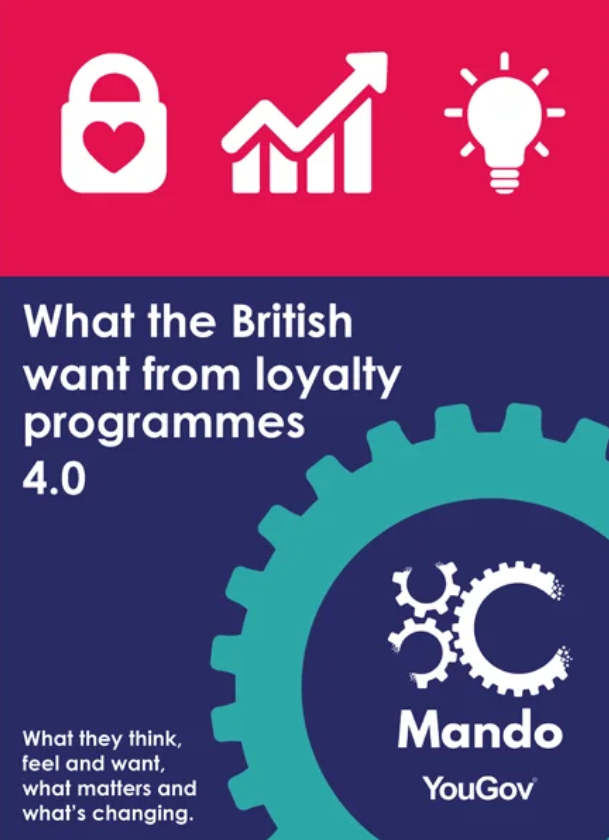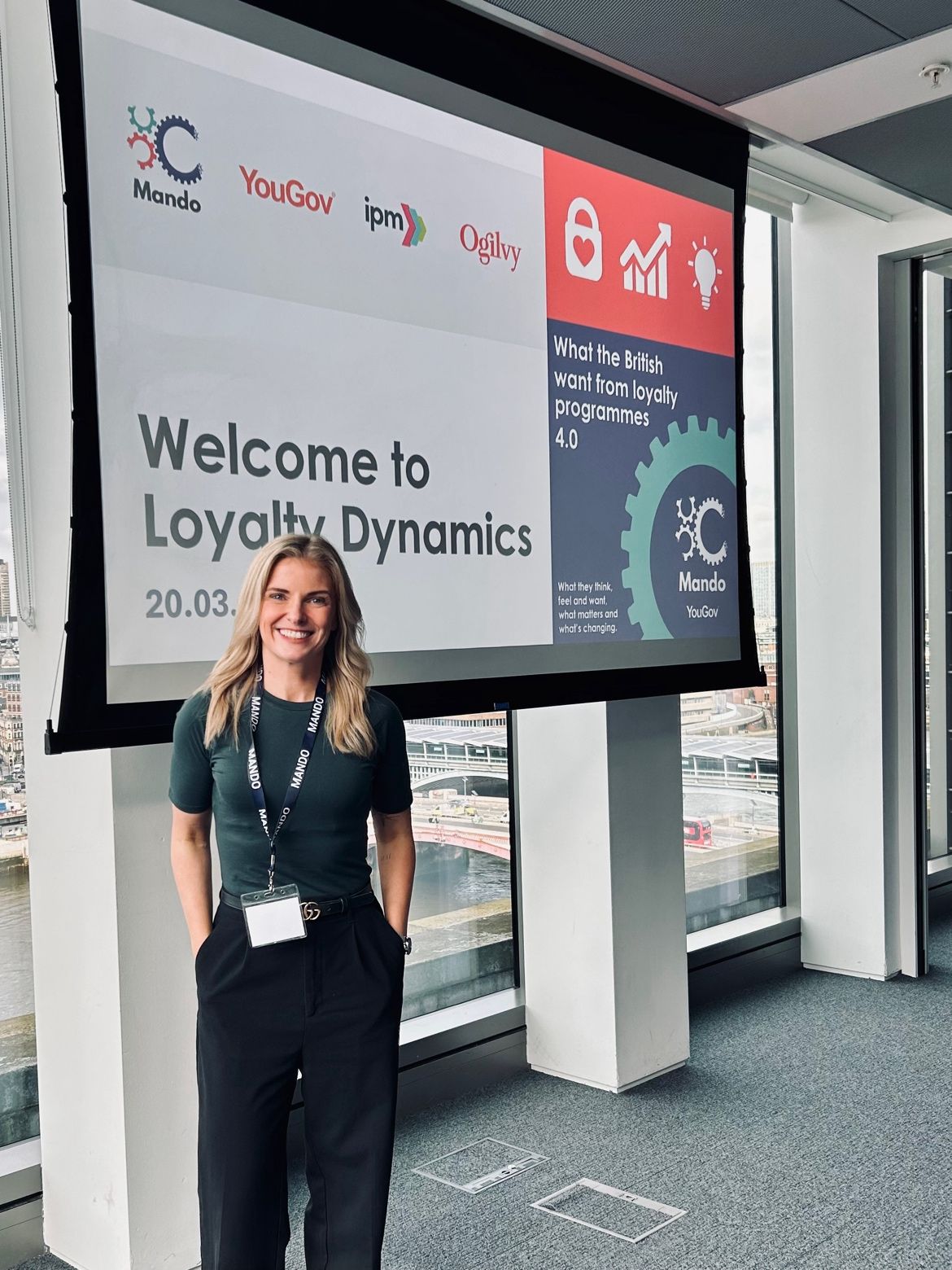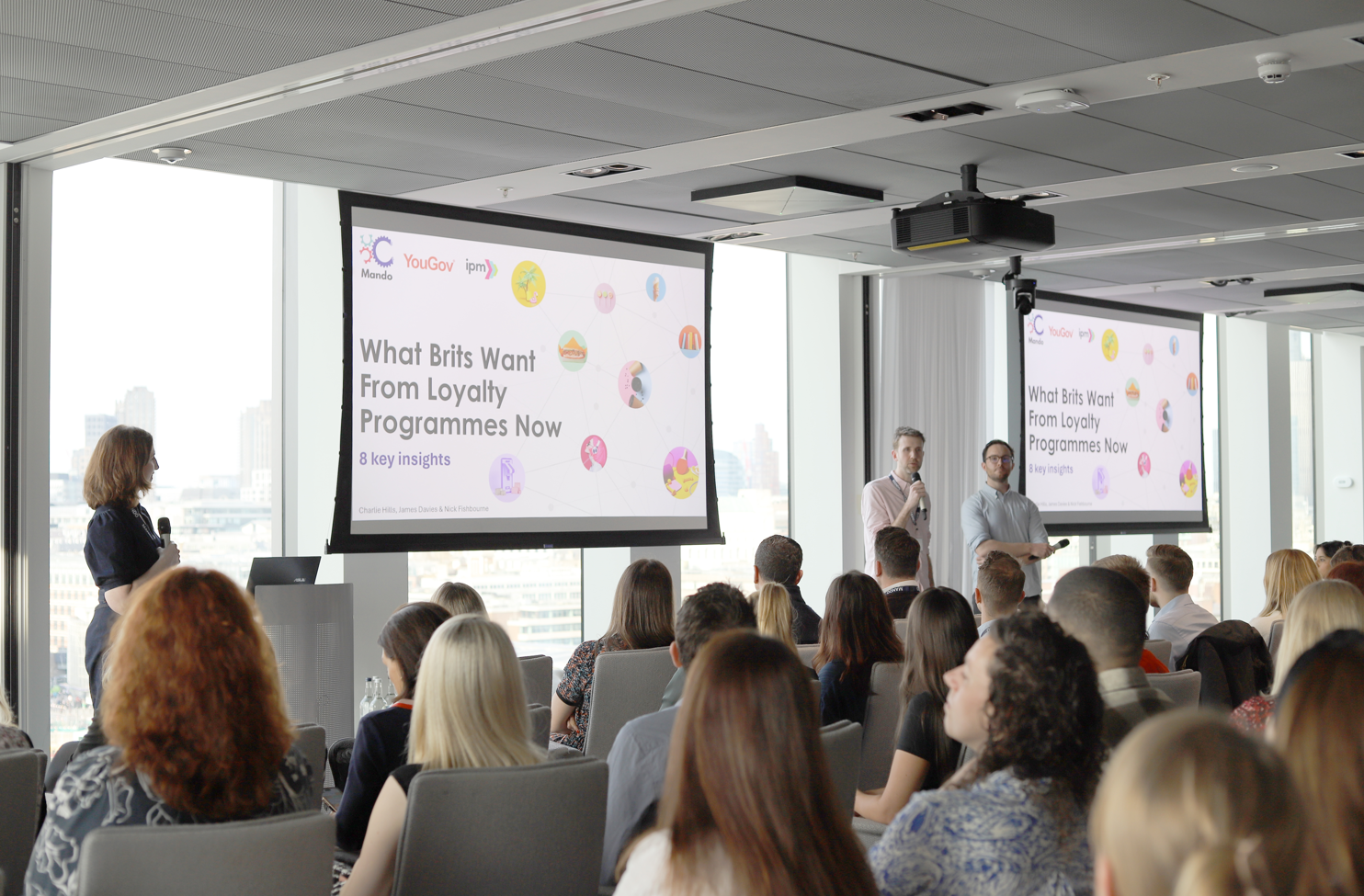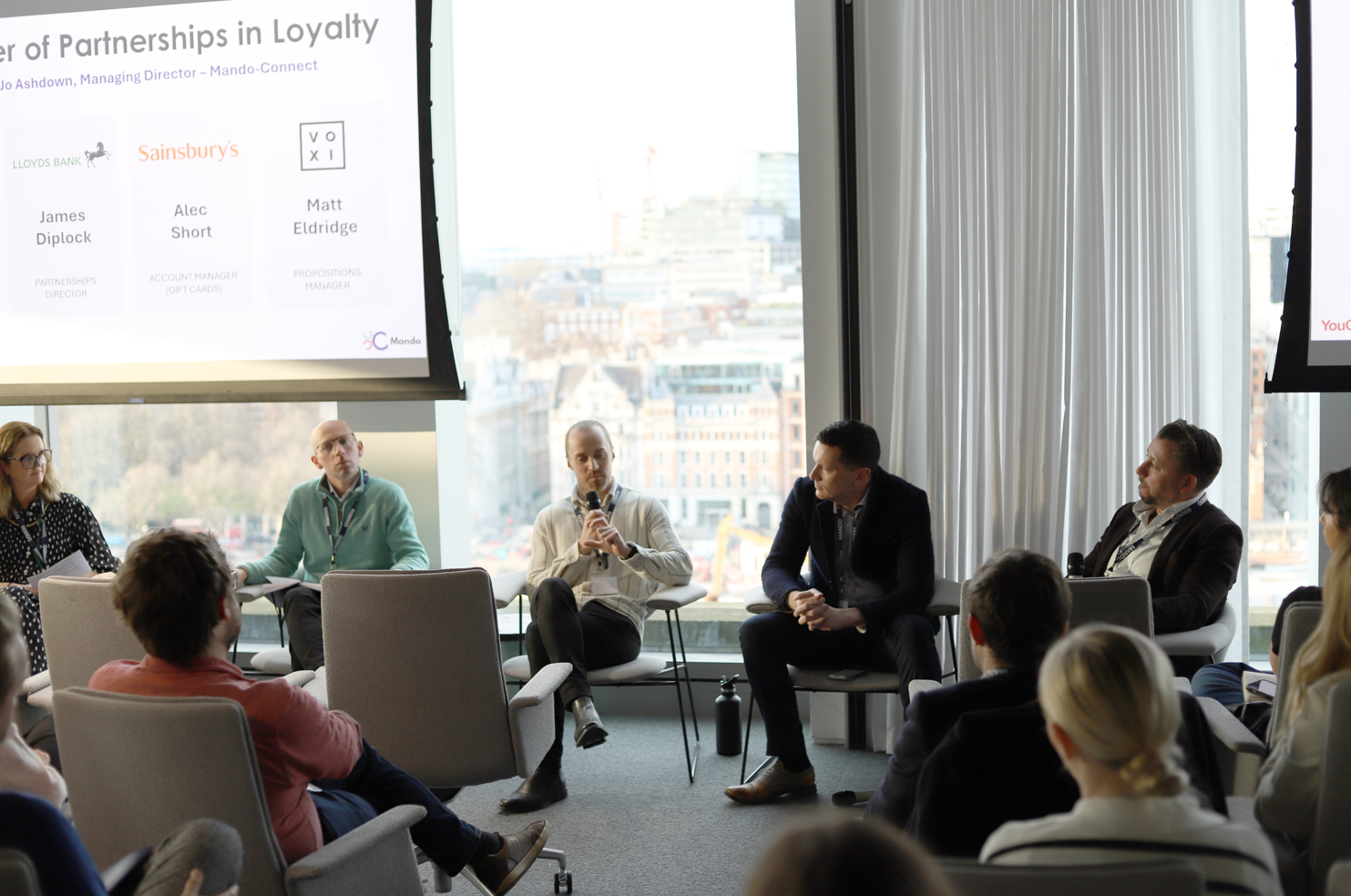What Brits Want from Loyalty: Key Insights from Mando-Connect
2024 marks a monumental year for loyalty marketing, with programme membership and engagement soaring to unprecedented heights across the UK. To understand the loyalty revolution, IPM is proud to partner with Mando-Connect and Ogilvy to launch the eagerly awaited “What the British Want from Loyalty Programmes” whitepaper. This essential industry resource marks the fourth instalment of a long running series developed in partnership with YouGov.
The Loyalty Dynamics 3.0 launch event provided attendees with a comprehensive view of what drives loyalty in the UK. Discover the key takeaways alongside full access to the whitepaper.


What Brits Want from Loyalty: Key Insights from Mando-Connect
2024 marks a monumental year for loyalty marketing, with programme membership and engagement soaring to unprecedented heights across the UK. To understand the loyalty revolution, IPM is proud to partner with Mando-Connect and Ogilvy to launch the eagerly awaited “What the British Want from Loyalty Programmes” whitepaper. This essential industry resource marks the fourth instalment of a long running series developed in partnership with YouGov.
The Loyalty Dynamics 3.0 launch event provided attendees with a comprehensive view of what drives loyalty in the UK. Discover the key takeaways alongside full access to the whitepaper.


Key Takeaways
Key Takeaways

Loyalty Dynamics 3.0

Loyalty Dynamics 3.0









News
Agencies Hail CORE A Game-Changer for Experiential Insights
Agencies Hail CORE A Game-Changer for Experiential Insights. Secure 1 weeks access for non-IPM members.
Beyond the Rainbow: Growing Your Brand with Pride
Discover how brands can genuinely support the LGBTQIA+ community at Pride 2024.
Plunge into a Summer Review of ASA Promotion Rulings 2024
Dive into our Summer Review of ASA Promotion Rulings 2024.






